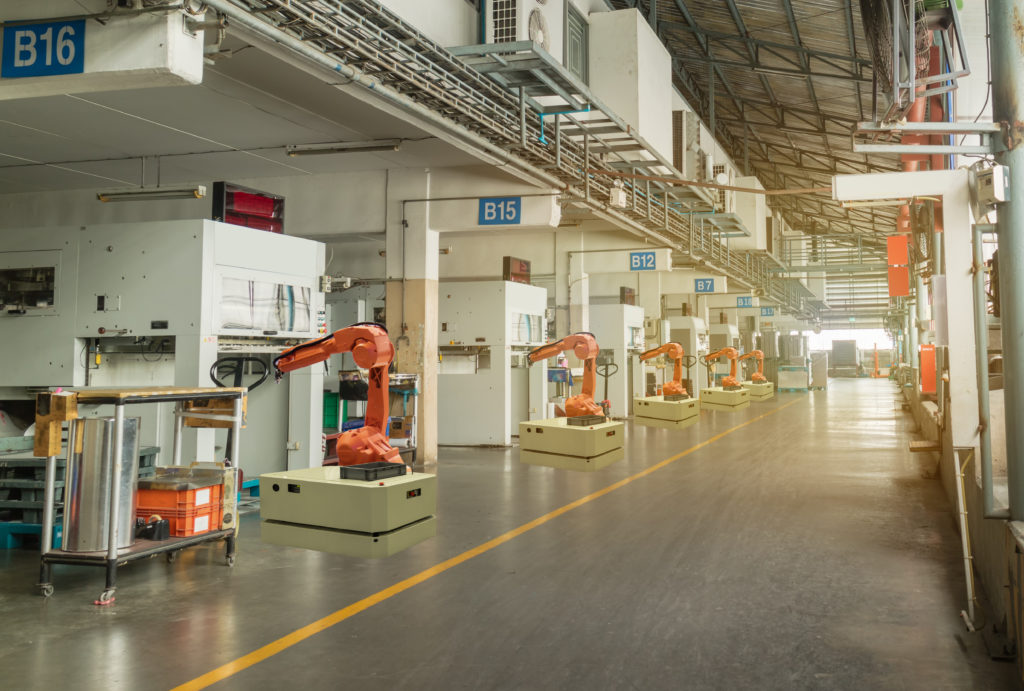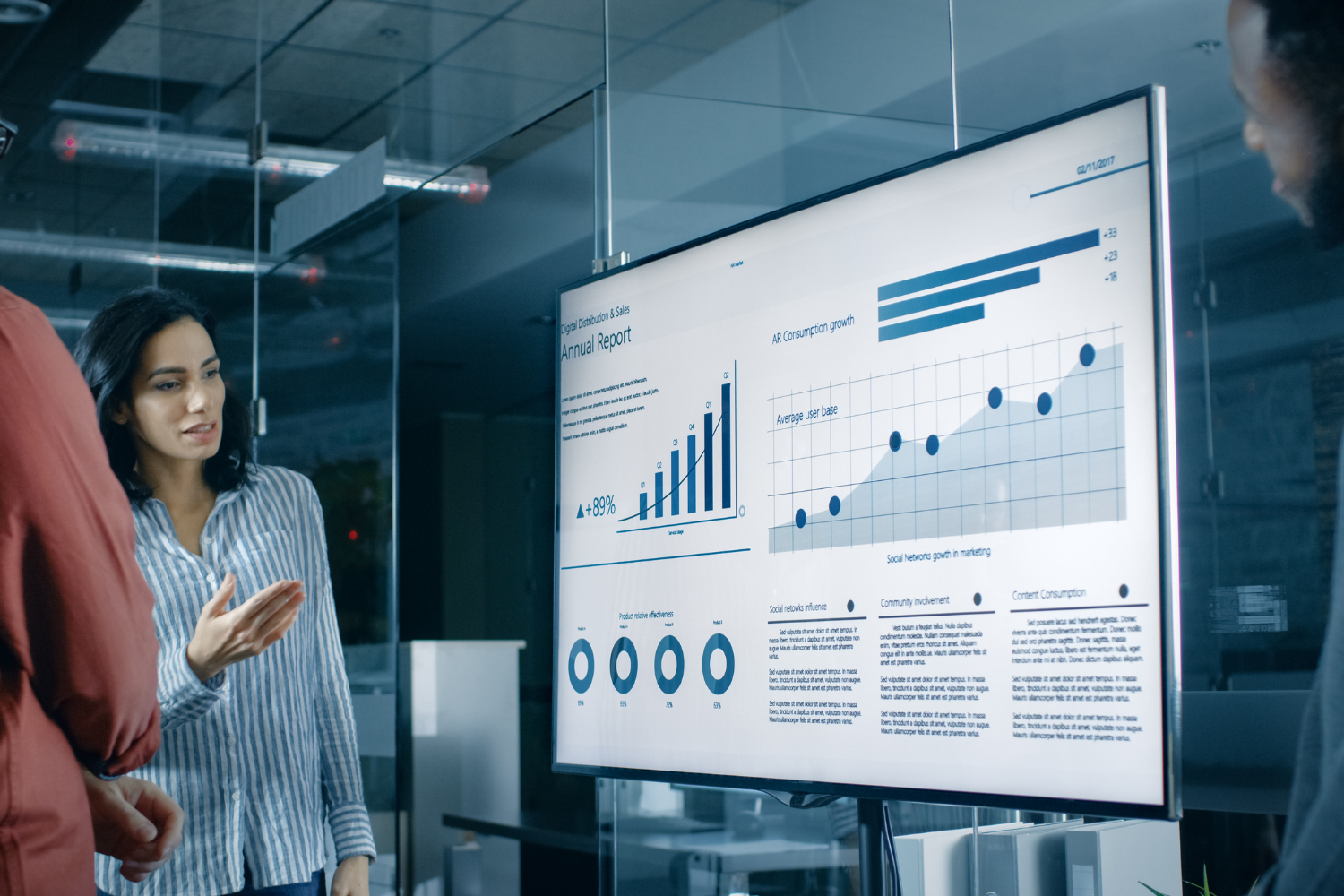- About Us
- People
- Practice Areas
Our Services
Partners and Operating Partners undertake either roles or assignments, working alone or in teams as appropriate. They have the backup of the extensive network that the gunnercooke Operating Sphere provides, delivering skills, services, solutions across a wide range of verticals addressing a multitude of challenges and opportunities
- News & Insights
- Get in touch

Artificial intelligence (AI) is rapidly revolutionising the manufacturing industry, enabling machines to perform humanlike tasks and transforming factories and manufacturing processes. This comprehensive article explores the current solutions being implemented, envisions future advancements, and examines the possible impacts of AI on factories and manufacturing in the next 10 years. The integration of AI in manufacturing is driving improvements in productivity, Quality Control, cost reduction, new product development, supply chain optimisation and business model innovation, shaping the industry’s landscape for the future.
Automation and Robotics:
Current Solutions:
Collaborative robots (cobots) and autonomous mobile robots (AMRs) are already transforming manufacturing facilities, working alongside humans and managing material handling and logistics tasks with the aid of AI algorithms and sensors.
Future Solutions:
Looking ahead, advanced humanoid robots with enhanced dexterity and mobility could perform intricate tasks, while swarm robotics could enable complex and efficient Operations in manufacturing, enhancing productivity and flexibility.
Predictive Maintenance:
Current Solutions:
Condition monitoring systems equipped with sensors and AI algorithms collect real-time data to predict maintenance needs, optimising schedules and improving equipment reliability using Machine Learning models.
Future Solutions:
Leveraging advanced Machine Learning techniques like Deep Learning and Neural Networks, future solutions could further enhance Predictive Maintenance capabilities. Integration of IoT devices and edge computing will enable real-time monitoring and analysis, minimising downtime and improving maintenance efficiency.
Quality Control and Inspection:
Current Solutions:
AI-powered computer vision systems inspect products for defects and inconsistencies, ensuring high Quality. Defect detection algorithms accurately identify and classify defects in various industries.
Future Solutions:
Future solutions may incorporate advanced computer vision techniques such as 3D imaging and hyperspectral imaging to detect even more nuanced defects. Integration of AI with robotics will enable real-time adjustments during manufacturing processes to ensure higher product Quality.
Supply Chain Optimisation:
Current Solutions:
AI-based demand forecasting models analyse historical sales data to optimise inventory levels and Production Planning, reducing costs and improving efficiency using Machine Learning algorithms.
Future Solutions:
Looking forward, blockchain technology will enable secure and transparent tracking of products, optimising traceability. AI-powered demand sensing models will leverage real-time data from social media and customer sentiment analysis for enhanced forecasting accuracy, ensuring agile and responsive supply chains.
Process Optimisation:
Current Solutions:
AI-based solutions analyse real-time sensor data and production metrics to identify inefficiencies and streamline processes. Digital Twin technology allows simulation and testing of process changes before implementation.
Future Solutions:
Future solutions may leverage Reinforcement Learning techniques for real-time process optimisation. Advanced Digital Twins incorporating real-time data and AI capabilities will enable continuous optimisation and Adaptive Manufacturing processes.
Intelligent Decision Support:
Current Solutions:
AI-powered analytics platforms integrate data to provide real-time insights and recommendations. Machine Learning algorithms analyse data for decision-making in Production Schedules, Resource Allocation and Energy Management.
Future Solutions:
Explainable AI models and augmented intelligence will enhance transparency and combine human expertise with AI insights for better decision-making, empowering manufacturers with intelligent decision support systems.
Human-Machine Collaboration:
Current Solutions:
Exoskeletons and augmented reality (AR) systems support workers in physically demanding tasks and provide real-time guidance.
Future Solutions:
Looking ahead, advanced wearable devices leveraging AI will provide workers with real-time feedback on performance and safety. Collaborative robots will become more adaptable, enabling seamless cooperation and handling complex tasks, promoting efficient human-machine collaboration.
The next decade holds tremendous promise for AI in factories and manufacturing. With current solutions already transforming operations and future advancements on the horizon, AI will continue to enhance automation, predictive maintenance, quality control, supply chain optimisation, process efficiency, decision support and human-machine collaboration. While challenges like job displacement and upskilling remain, careful implementation of AI technologies can unlock the potential for increased productivity, improved product quality and more efficient manufacturing processes.
About gunnercooke
gunnercookeOP are continuously monitoring developments and reporting on many of the identified topics with new articles regularly posted to: https://gunnercookeop.com/news-and-insights/
Our mission is simple: to help Investors, Owners, and Leaders grow and improve their businesses. We offer pragmatic solutions that fit your specific requirements, building a toolkit of practices that support performance improvement and the adoption of change.
Should you require further assistance and wish to have a conversation to explore more, contact the author as follows:


